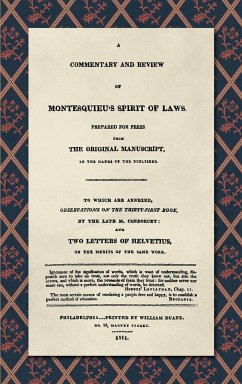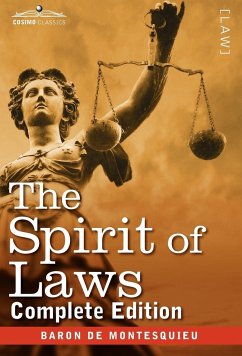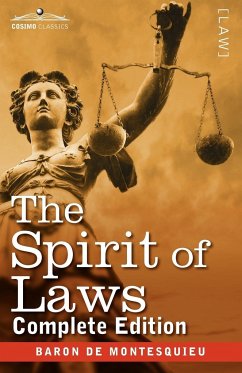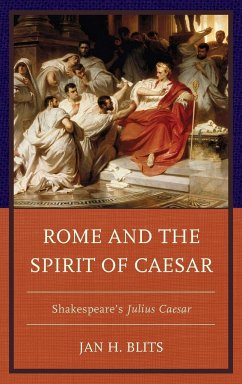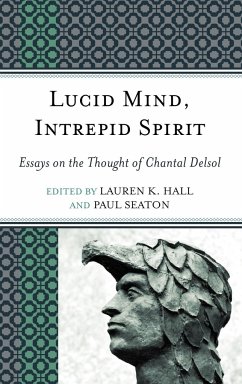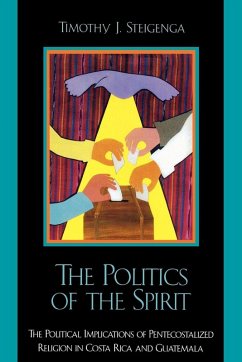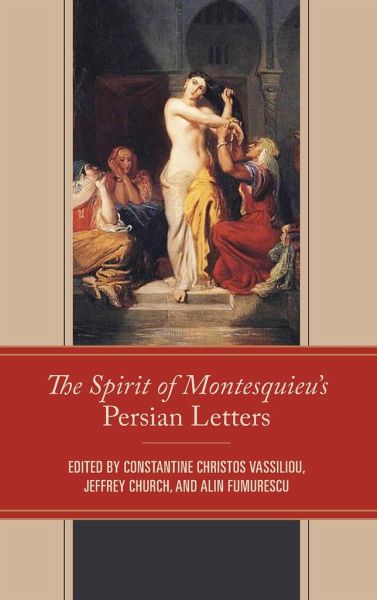
Spirit of Montesquieu's Persian Letters
Versandkostenfrei!
Versandfertig in 1-2 Wochen
102,99 €
inkl. MwSt.
Weitere Ausgaben:

PAYBACK Punkte
51 °P sammeln!
The Spirit of Montesquieu’s Persian Letters explores Montesquieu’s careful treatment of the spiritual, ethical, and civic dilemmas France encountered in the early 18th Century. In examining Montesquieu’s response to Bourbon France’s commercial and political culture of this time, it will help deepen our understanding of his political philosophy.





